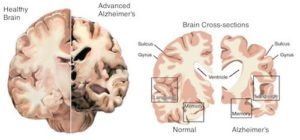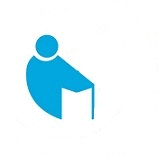TMS for Alzheimer disease
 Brain-Derived Neurotrophic Factor (BDNF) has an important role in neuronal plasticity.
Brain-Derived Neurotrophic Factor (BDNF) has an important role in neuronal plasticity.
Niimi et al. showed that the combination of rehabilitation and low-frequency rTMS may improve motor function in the affected limb, by activating BDNF. Adult neurogenesis plays important roles in synaptic plasticity and memory. It is reported that rTMS stimulation of the rat thalamus increased adult neurogenesis. In preclinical studies in murine model of vascular dementia, rTMS was able to improve cognitive deficits by modified hippocampal synaptic plasticity and increased BDNF. Also low frequency rTMS may promote hippocampal synaptic plasticity through increased expression of the Bcl-2 and reduced expression of Bax in VaD model rats. Moreover repetitive TMS might become useful in the rehabilitation of patients with dementia in the attempt to restore impaired brain plasticity.
Cortical excitability is increased in Alzheimer’s disease and in vascular dementia, and short-latency afferent inhibition is normal in vascular dementia, but suppressed in Alzheimer’s disease. Bentwich et al. combined rTMS with cognitive training in Alzheimer’s disease patients who were treated for more than two months with cholinesterase inhibitors. These patients were subjected to daily rTMS cognitive training sessions (5/week) for 6 weeks, followed by maintenance session (2/week) for an additional 3 months. They demonstrated a significant improvement in Alzheimer Disease Assessment Scale-Cognitive after 6 weeks of treatment.
